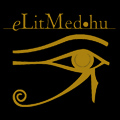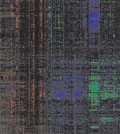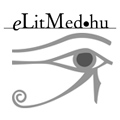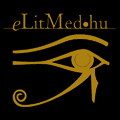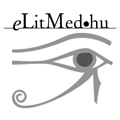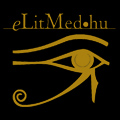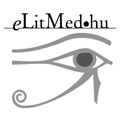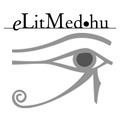The eLitMed.hu medical portal uses computer cookies for convenient operation. Detailed information can be found in the Cookie-policy.
Lege Artis Medicinae - 2002;12(06-07)
Content
[Prediction of rebleeding and its importance in the treatment of upper gastrointestinal bleedings originating from peptic ulcers]
[Nearly 50% of upper gastrointestinal bleedings originate from peptic ulcers. While the number of scheduled operations carried out due to peptic ulcers is decreased to nearly zero in the past decade, the number operations due to the complications of peptic ulcers remained unchanged. Bleeding from peptic ulcers usually stops spontaneously in a remarkable part of the cases, but in many times rebleeding is anticipated. These patients present several problems which are difficult to treat, and patients in need of emergency surgery are usually from this group. This is the main reason why the identification of those patients with high risk for rebleeding is important. With the help of the modified "Baylor Bleeding Score" rebleeding can be predicted. In the case of high risk for rebleeding, an early elective operation can avoid a latter urgent operation, which has markedly higher mortality and morbidity. In peptic ulcer bleeding, endoscopic treatment modalities have the priority. Most preferred method is the injection of different haemostatic drugs, with thermal methods and haemoclips being also accepted. Among surgical treatments, ”aggressive” resection operations are preferable. Additional "conservative" medical treatment with proton pump inhibitors is also recommended.]
[Functional genomics - Potentials, hopes, and post genomic realism]
[This paper provides an overview on major elements of the age of genomics: including the human genome programme, principles of gene chip technology and data management by bioinformatics. The manuscript provides examples from the fields of oncology, infectology and allergy. The possibility of ”in silico” research on computers is also presented with the shadows of the post-genomic era and the significance of changes in the biomedical paradigm.]
[The future of chest X-ray screening in Hungary]
[In 2001 4.095.134 chest screening examinations were carried out at 154 fixed and 50 mobile Xray screening stations in Hungary. Currently, screening for tuberculosis is mandatory by law, but a recently issued decree by the Health Minister states that the method is suitable for the screening of lung cancer as well. Unfortunately, the majority of the machines are old and since replacements are long overdue, the assessment with a high technical standard and quality is not always possible. These are the reasons why a plan must be outlined for the necessary improvement and for the renewal of the equipment pool, based on expert opinion. In the literature, there are ongoing spirited discussions on the efficacy of X-ray screening as well as on the possibilities of CT-scans for the identification of lung cancer. The size of the investment needed makes it necessary that costbenefit factors and the possibility of joining the National Health Prevention program should be considered.]
[Changes in the treatment of childhood asthma with inhalational steroids]
[Since about 30 years, inhalational steroids are the most important drugs in the treatment of persistent (chronic) asthma. According to the severity of the disease, small, medium and high doses of steroids should be given, often together with long lasting beta-agonists. In the last years the therapeutical advice was simplified as the cromolyns and the theophyllins were almost excluded. Leukotrien antagonists appeared either in combination or as monotherapy. Using conventional doses in inhalational steroid therapy there are hardly any side effects, but it is important to give the smallest possible effective dose while achieving maximum bioavailability. Patients all over the world - including Hungary - do not receive optimal antiasthmatic therapy or use drugs ideally, which is especially true to inhalational steroids, resulting in a treatment much less efficient than possible.]
[The validation of a disease specific quality of life instrument in patients with psoriatic arthritis]
[Measuring quality of life (QoL) has a growing importance in the field of health technology assessment. It is especially true for chronic diseases, such as psoriatic arthritis, which has significant impact on patients’ quality of life through the intensity of symptoms and the duration of the disease. The quality of life measurement can only be reliable and valid if an appropriate instrument is used. One of the most critical elements of the validity of quality of life intruments is the method used for adapting the questionnaire to foreign languages. Authors present their results and experience in the Hungarian adaptation of the Psoriatic Arthritis Quality of Life (PSAQoL) questionnaire.]
1.
Clinical Neuroscience
Is there any difference in mortality rates of atrial fibrillation detected before or after ischemic stroke?2.
Clinical Neuroscience
Factors influencing the level of stigma in Parkinson’s disease in western Turkey3.
Clinical Neuroscience
Neuropathic pain and mood disorders in earthquake survivors with peripheral nerve injuries4.
Journal of Nursing Theory and Practice
[Correlations of Sarcopenia, Frailty, Falls and Social Isolation – A Literature Review in the Light of Swedish Statistics]5.
Clinical Neuroscience
[Comparison of pain intensity measurements among patients with low-back pain]1.
Clinical Neuroscience Proceedings
[A Magyar Stroke Társaság XVIII. Kongresszusa és a Magyar Neuroszonológiai Társaság XV. Konferenciája. Absztraktfüzet]2.
3.
Journal of Nursing Theory and Practice
[A selection of the entries submitted to the literary contest "Honorable mission: the joys and challenges of our profession" ]4.
Journal of Nursing Theory and Practice
[End of Life and Palliative Care of Newborns in the Nursing Context]5.
Journal of Nursing Theory and Practice
[Aspects of Occupational Health Nursing for Incurable Patients ]



